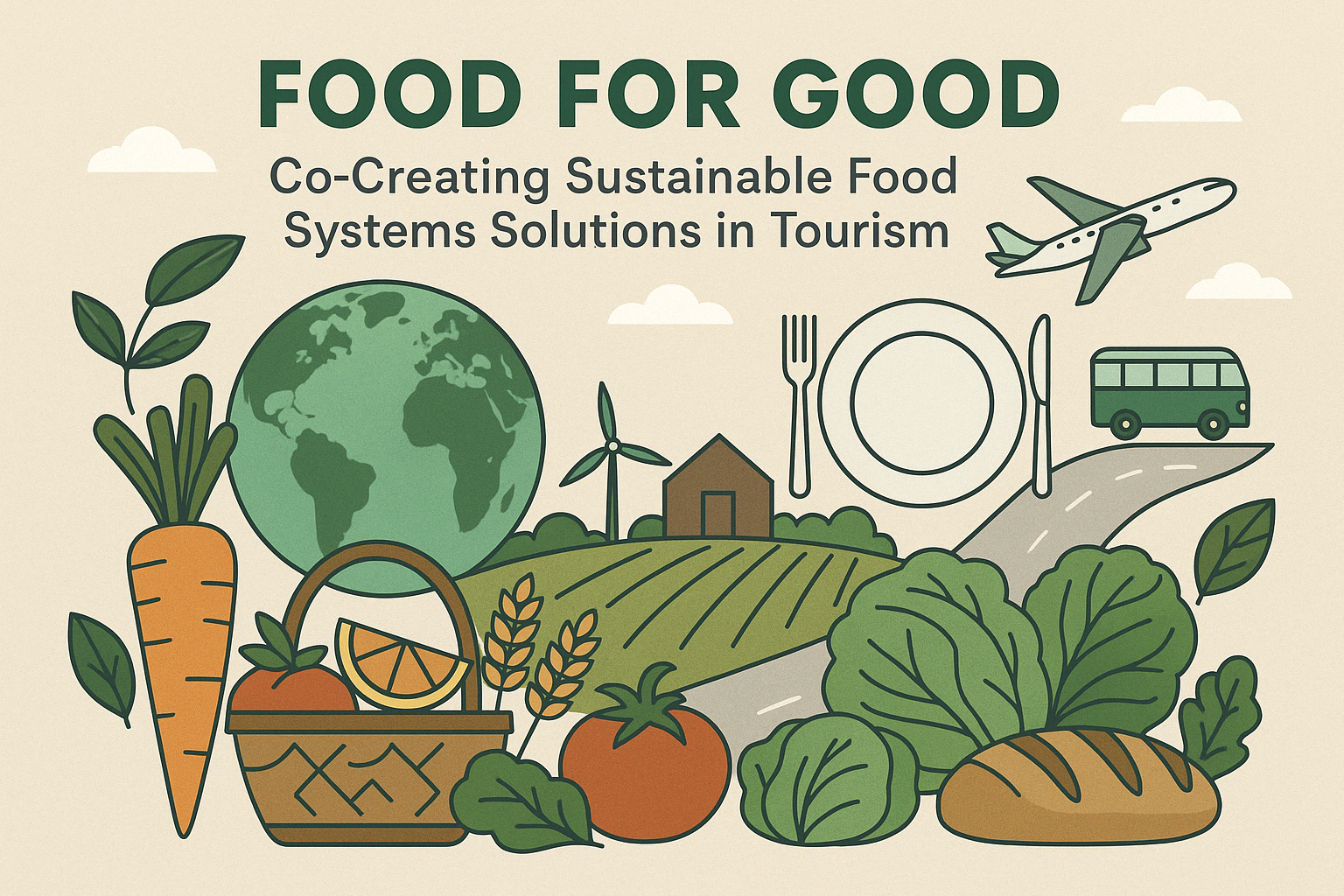
Food for Good: Co-Creating Sustainable Food Systems Solutions in Tourism
Food for Good is a two-year action-research initiative designed to transform the tourism sector’s impact on global food systems. The project is a strategic collaboration between United Nations Tourism (UN Tourism), the Centre for Resilience and Sustainable Development (CRSD) at the University of Cambridge, and the TUI Care Foundation.
The initiative directly supports UN Tourism’s Global Roadmap for Food Waste Reduction in the Tourism Sector, and aims to co-create innovative policy pathways that address inefficiencies and negative socio-environmental impacts within the tourism food value chain. These efforts are grounded in a systems thinking approach, recognizing that food waste and resource inefficiencies are not isolated problems, but symptoms of complex, interdependent challenges that require integrated solutions.
The global food system is a major driver of environmental degradation—accounting for 34% of greenhouse gas emissions, using half of the planet’s habitable land, and 70% of available freshwater. One-third of food produced is lost or wasted, equating to USD 1 trillion in economic losses annually. With over 80 billion meals served to tourists in 2019 alone, the tourism sector significantly contributes to food waste, particularly in the consumption phase, which accounts for 26% of total food waste.
Food for Good seeks to shift these dynamics by positioning tourism as a force for regenerative food systems. By applying whole-of-systems thinking and focusing on backward and forward linkages—from local producers to hospitality service providers to consumer behavior—the project will identify and activate opportunities for innovation, circularity, and investment across the entire value chain.
At the core of the project is the Cambridge Policy Boot Camp (CPBC), a transdisciplinary method developed by CRSD that will be deployed as a key tool for stakeholder engagement, knowledge integration, and co-creation of actionable strategies. CPBC creates space for inclusive dialogue across sectors and disciplines, enabling the identification of leverage points for policy innovation and systemic change.
By applying systems thinking and engaging stakeholders across the tourism value chain, Food for Good will generate practical, locally grounded solutions with global relevance. The project aspires to establish a new standard for sustainable tourism practices—reducing food waste, enhancing resource efficiency, and creating resilient, inclusive food systems that support both people and planet.
Key Deliverables:
1. Global Impact Roadmap for Food System Sustainability and Circularity in Tourism
2. Vision and Pathways for Sustainable Food Systems in Tourism – Cabo Verde Prototype
3. Train executives in Cambridge Policy Boot Camp (CPBC)
The project will end in 2028.
For more information email to nsh29@cam.ac.uk
